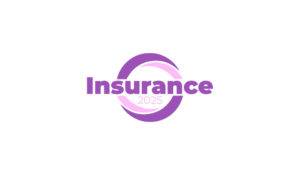6. Factors to consider when choosing a ticker insurance provider
When it comes to choosing a ticker insurance provider, there are several important factors to consider. This decision is crucial as it can greatly impact the protection and coverage you receive for your valuable assets.
First and foremost, it is essential to assess the reputation and reliability of the insurance provider. Look for companies with a strong track record in the industry, as well as positive customer reviews and ratings. A reputable provider will have a solid financial standing and a history of efficiently handling claims.
Next, consider the specific coverage options offered by each insurance provider. Some providers may offer comprehensive coverage that includes protection against theft, damage, loss, and even liability, while others may only offer limited coverage. Take the time to understand the terms and conditions of each policy, ensuring that it meets your expectations.
Additionally, it is important to assess the level of customer service provided by the ticker insurance provider. Look for companies that have a responsive and knowledgeable support team, readily available to answer any questions or concerns you may have. A provider that offers personalized assistance and prompt claims processing can make a significant difference in the overall experience.
Price is another crucial factor to consider. While it is important to find an affordable insurance policy, don’t make the mistake of solely focusing on the price. Cheaper options may provide limited coverage or have hidden costs, so it is crucial to thoroughly review the policy details and compare quotes from multiple providers to ensure you .
Lastly, take into account any additional benefits or features offered by the ticker insurance provider. Some providers may offer perks such as discounts, flexible payment options, or additional coverage for specific situations or events. These extras can enhance the overall value of the insurance policy and make it more tailored to your needs.
By carefully considering these factors, you can make an informed decision when choosing a ticker insurance provider that offers the right coverage, reliability, and customer service for your valuable assets.
7. Common misconceptions about ticker insurance
When it comes to ticker insurance, there are several common misconceptions that can often lead to confusion and misunderstandings. By debunking these misconceptions, we can shed light on the true nature and benefits of ticker insurance.
One common misconception is that ticker insurance is only necessary for large-scale events or high-profile venues. In reality, ticker insurance can be valuable for any event, big or small. Whether you are organizing a local concert, a community fair, or a corporate conference, having ticker insurance in place can protect you from unforeseen circumstances such as event cancellation, equipment damage, or liability claims.
Another misconception is that ticker insurance is too expensive and not worth the investment. While the cost of ticker insurance can vary depending on factors such as the size and type of event, it is important to consider the potential financial impact of unexpected incidents. Ticker insurance provides peace of mind and financial protection, allowing event organizers to focus on creating a successful event without the constant worry of potential risks.
Some may also mistakenly believe that general liability insurance is sufficient to cover all aspects of an event, including ticket-related issues. However, general liability insurance may not provide specific coverage for ticket-related risks such as ticket fraud, event cancellation, or technical glitches in the ticketing system. Ticker insurance offers specialized coverage tailored to the unique risks associated with ticket sales and events.
Lastly, some may assume that ticker insurance is only necessary for events that sell physical tickets. In today’s digital age, many events utilize electronic or mobile ticketing systems. Ticker insurance can still provide coverage for these types of events, protecting against risks such as technical failures, cyber-attacks, or fraudulent ticketing activities.
By dispelling these misconceptions, it becomes evident that ticker insurance is a valuable tool for event organizers. It provides protection against a wide range of potential risks and ensures a smoother and more secure experience for both event organizers and ticket buyers. Understanding the true nature of ticker insurance is essential for making informed decisions and safeguarding the success of your events.
8. How to file a ticker insurance claim
Filing a ticker insurance claim can seem like a daunting task, but with the right knowledge and preparation, it can be a smooth process. Here are the steps to follow when filing a ticker insurance claim:
1. Review your policy: Before filing a claim, carefully review your ticker insurance policy to understand the coverage and any specific requirements or exclusions. This will help you determine if your claim is eligible for reimbursement.
2. Document the incident: Take detailed notes and gather evidence related to the incident that prompted your claim. This may include photographs, videos, receipts, or any other supporting documentation that can strengthen your case.
3. Notify your insurance provider: Contact your insurance provider as soon as possible to report the incident and initiate the claims process. They will guide you through the necessary steps and provide you with the required claim forms.
4. Complete the claim forms: Fill out the claim forms accurately and provide all the requested information. Be prepared to provide details about the incident, including the date, time, location, and a description of what happened. Attach any supporting documents as required.
5. Provide supporting documentation: Along with the completed claim forms, submit any additional supporting documentation that strengthens your claim. This may include police reports, medical records, repair estimates, or any other relevant paperwork.
6. Cooperate with the investigation: Depending on the nature of the claim, your insurance provider may conduct an investigation to verify the circumstances and validity of the claim. Cooperate fully with their inquiries and provide any additional information or documentation they may request.
7. Follow up regularly: Stay in touch with your insurance provider to get updates on the progress of your claim. If there are any delays or issues, communicate with them promptly to address any concerns and ensure a smooth resolution.
8. Review the settlement offer: Once your claim is processed, your insurance provider will provide you with a settlement offer. Carefully review the offer to ensure it covers the damages or losses you have incurred. If you have any questions or concerns, discuss them with your insurance provider.
9. Accept or appeal the settlement: If you are satisfied with the settlement offer, you can accept it and receive the reimbursement according to the terms of your policy. However, if you believe the offer is inadequate or unfair, you have the right to appeal the decision and provide additional evidence or arguments to support your claim.
Remember, each insurance provider may have specific procedures and requirements for filing a ticker insurance claim, so it’s essential to follow their guidelines. By being well-prepared, organized, and proactive throughout the process, you can navigate the claims process with confidence and increase the chances of a successful outcome.

